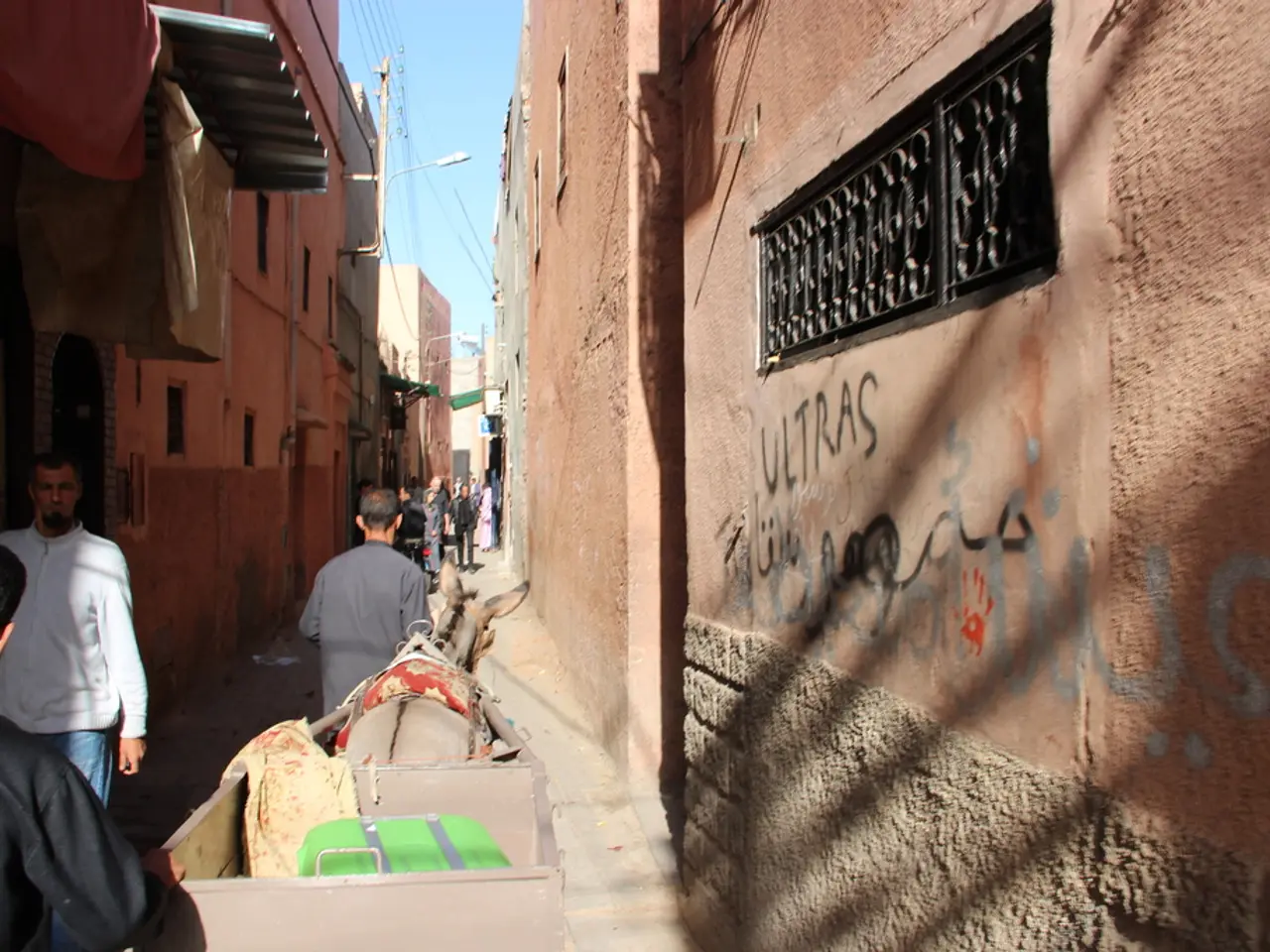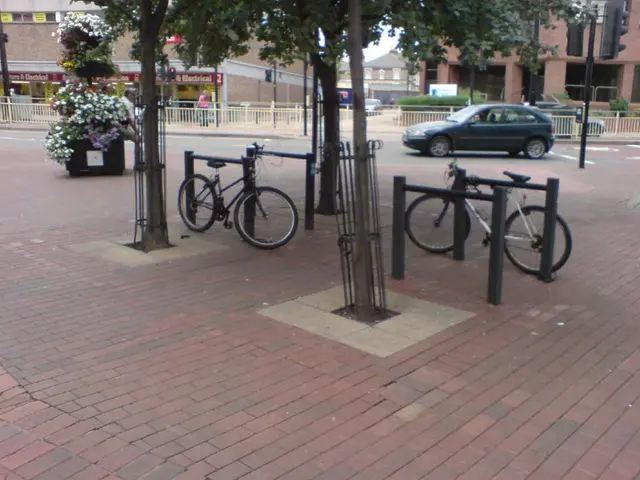Offices in Jerusalem Overshadowed by Salt and Pepper Shakers
In the heart of the Middle East, Palestinian Jerusalemites face a unique set of challenges in navigating their daily lives. One of the most significant of these challenges is the Israeli bureaucracy, which exerts a profound influence on their sense of belonging and everyday routines.
Yazan Khalili, a Palestinian visual artist, sheds light on this issue through his 2018 project, "Centre of Life." Khalili's work explores how Israeli bureaucracy affects the behaviours and senses of belonging of Palestinian Jerusalemites.
Israel's overall strategy has been to reduce the proportion of Palestinians in the city, a goal achieved through various means, including the revocation of residency status. Palestinians in Jerusalem, who hold a status of permanent residency rather than citizenship, must carefully police their homes and everyday activities to avoid raising suspicions that might jeopardize their residency rights.
Their lives are filled with paper trails, as they rely on various official and informal documents and objects as proof of residence. These include rental contracts, electricity bills, GPS logs from smartphones, grocery receipts, and even school homework. The mundane details of their lives, such as the location of salt and spices in their homes, are subject to intense scrutiny during residency inspections.
The impact on their lives is significant. Palestinians report experiences of micro-interrogation and home inspections that intrude deeply into private and ordinary aspects of life. This invasive bureaucracy creates a constant environment of uncertainty and fear of displacement, undermining their feeling of security and connection to Jerusalem.
The term "Paper State" is often used by Palestinians in Jerusalem to describe the government that rules over them, symbolising the heavy reliance on documentation to prove their residency. The Israeli state's policy towards Palestinian Jerusalemites is referred to as the "center of life" policy.
The city's population is approximately 1,000,000, of which around 40% are Palestinians. Over 14,000 Palestinians have been displaced from Jerusalem and Palestine in general due to this policy.
In the Gaza Strip, another territory under Israeli control, the situation is no less dire. Israel has dropped more explosives in the Gaza Strip in 20 months than were used during World War II. The Gaza Strip, twice the size of Washington, D.C., is controlled by Israel with regard to movement, food, and supplies.
Khalili's work, which has been staged twice, visualizes and describes the bureaucratic processes involved in making a life in Palestinian Jerusalem. However, Khalili has never seen it in person due to his West Bank residency status. Despite the challenges, Khalili's work serves as a powerful reminder of the resilience and determination of the Palestinian people in the face of adversity.
References:
[1] Al-Haq. (2018). "The Centre of Life: Yazan Khalili’s Artistic Exploration of the Israeli Bureaucracy in Jerusalem." Accessed 1 April 2023. https://www.alhaq.org/advocacy/topics/palestinian-human-rights-defenders/1300-the-centre-of-life-yazan-khalilis-artistic-exploration-of-the-israeli-bureaucracy-in-jerusalem
[3] B'Tselem. (2020). "Residency Revocation." Accessed 1 April 2023. https://www.btselem.org/jerusalem/residency-revocation
Read also:
- Ontario falls short by a small margin in delivering the goal of four hours daily care for long-term care residents.
- "Thrilled response" from animal rights organization following cessation of canine testing at London, Ontario healthcare facility
- Altruistic zeal and a drive to instigate beneficial transformation
- Consequences of India's Diplomatic Disputes with the United States








